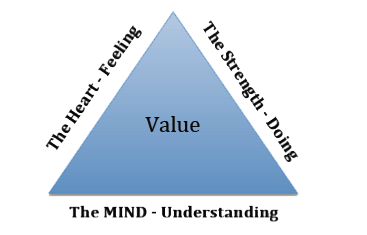by Craig Frogley
What is a value? The Webster’s on-line dictionary includes:
Middle English, worth, high quality, from Anglo-French, from Vulgar Latin *valuta, from feminine of *valutus, past participle of Latin valēre to be of worth, be strong. First Known Use: 14th century
7: something (as a principle or quality) intrinsically valuable or desirable…
What causes one thing to be valued or valuable, and other, seemingly desirable things, unvalued? Some things are so valued that we are willing to change behavior or forego opportunities to adhere to them. Things that may seem of value to some are passed over by others as worthless, either by decision or ignorance. For example the principle of honesty would motivate one person to forego opportunities to personally profit, while another would gladly cheat, steal, etc. in order to gain. Is it perspective or training, tradition or understanding that gives things or principles their value? The cheater, for example, might happily get paid more than something is worth, only later to find that he has lost a customer. He may find that he is always suspicious of others and consequently has created a culture of non-trust amongst his relations and contacts. Perhaps you want some benefits enjoyed by an acquaintance, but if you don’t see or understand the connection between the benefit and their beliefs and actions, you may be unwilling to discipline your own behavior (sacrifice other valued habits), and thus lose the desired benefit. If only you knew how to change a principle into a personal value, then it would become natural to you and the benefits would be yours for the long term.
One suggestion is to see the idea of “values†as a triangle:


